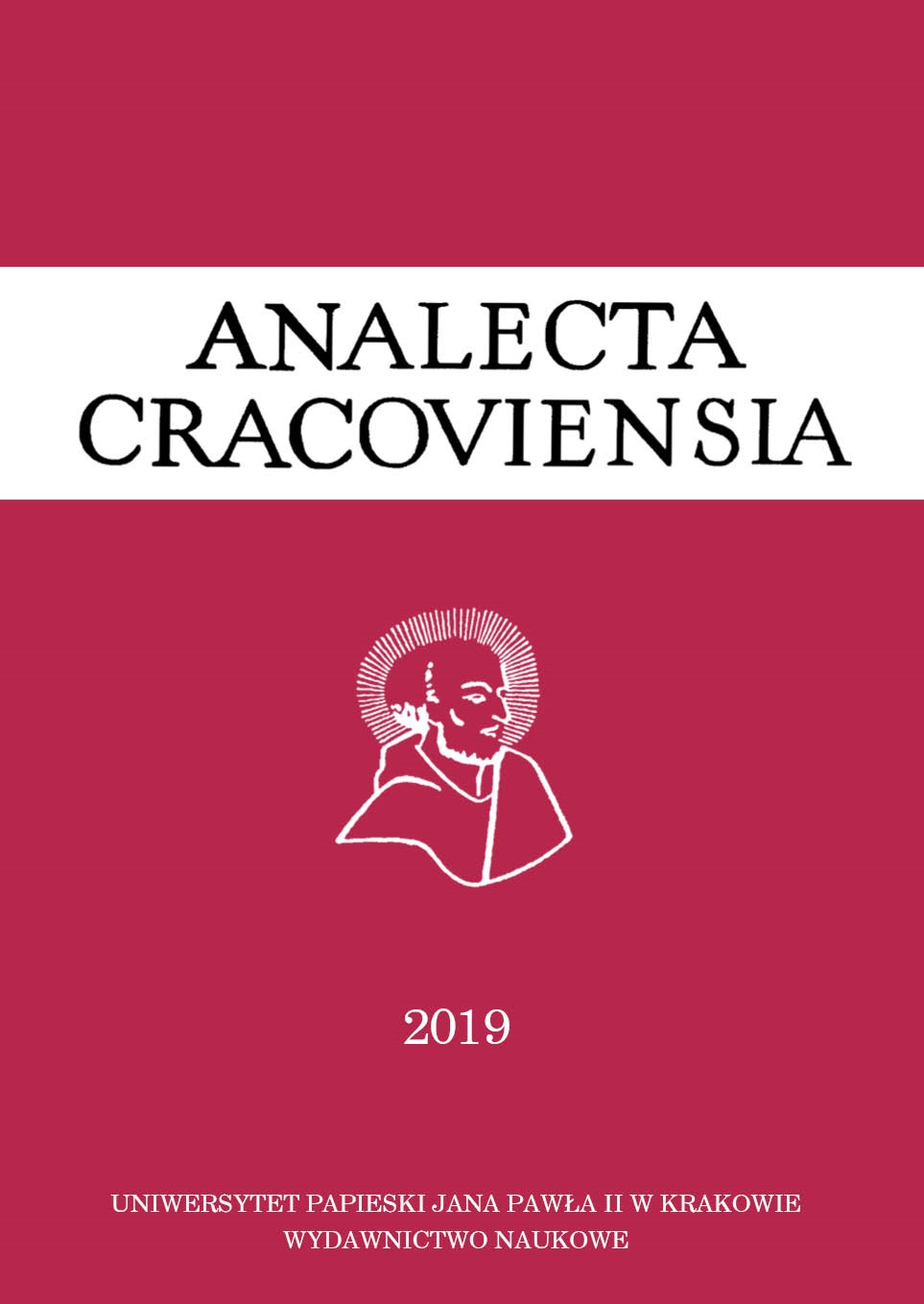Miłosierdzie antropologiczne w doświadczeniu mistycznym (Faustyna Kowalska) i refleksji filozoficznej (Józef Tischner)
The anthropological mercy in the mystical experience (Faustina Kowalska) and the philosophical reflection (Joseph Tischner)
The items of the ontological (theo-) anthropology. Part I
Author(s): Lidia MachetaSubject(s): Anthropology, Systematic Theology, Phenomenology
Published by: Wydawnictwo Naukowe Uniwersytetu Papieskiego Jana Pawła II w Krakowie
Keywords: anthropological mercy; ethics; religion; metaphysics; being oneself; ontological (theo-)anthropology
Summary/Abstract: The article is the first part of the study in the scope of contains a comparative analysis of the two concepts of anthropological mercy: the religious, in the mystical sense, concept of Faustina Kowalska (Diary) and the ethical-religious, in the reflective sense, concept of Joseph Tischner. This article concerns the anthropological mercy in the approach of Kowalska. The general similarities between this two concepts in religious dimension allow us to consider them from the perspective of one problem: the interaction between the ethics and the religion. The problem is studied on the basis of ontological (theo-)anthropology (a person is researched from the perspectives of the possibility and obligation of being self). The purpose of the analysis is a justification for the thesis that the interaction between the ethics and the religion is based on metaphysical factor. This purpose is achieved by demonstrating that the ethical-religious anthropological mercy in the philosophical approach of Tischner have a metaphysical basis and essence - and that in this metaphysical terms can be explained the phenomena of the religious anthropological mercy in the Diary. The article is the first part of the study in the scope of contains a comparative analysis of the two concepts of anthropological mercy: the religious, in the mystical sense, concept of Faustina Kowalska (Diary) and the ethical-religious, in the reflective sense, concept of Joseph Tischner. This article concerns the anthropological mercy in the approach of Kowalska. The general similarities between this two concepts in religious dimension allow us to consider them from the perspective of one problem: the interaction between the ethics and the religion. The problem is studied on the basis of ontological (theo-)anthropology (a person is researched from the perspectives of the possibility and obligation of being self). The purpose of the analysis is a justification for the thesis that the interaction between the ethics and the religion is based on metaphysical factor. This purpose is achieved by demonstrating that the ethical-religious anthropological mercy in the philosophical approach of Tischner have a metaphysical basis and essence − and that in this metaphysical terms can be explained the phenomena of the religious anthropological mercy in the Diary.
Journal: Analecta Cracoviensia. Czasopismo Uniwersytetu Papieskiego Jana Pawła II w Krakowie
- Issue Year: 2019
- Issue No: 51
- Page Range: 161-178
- Page Count: 18
- Language: Polish

